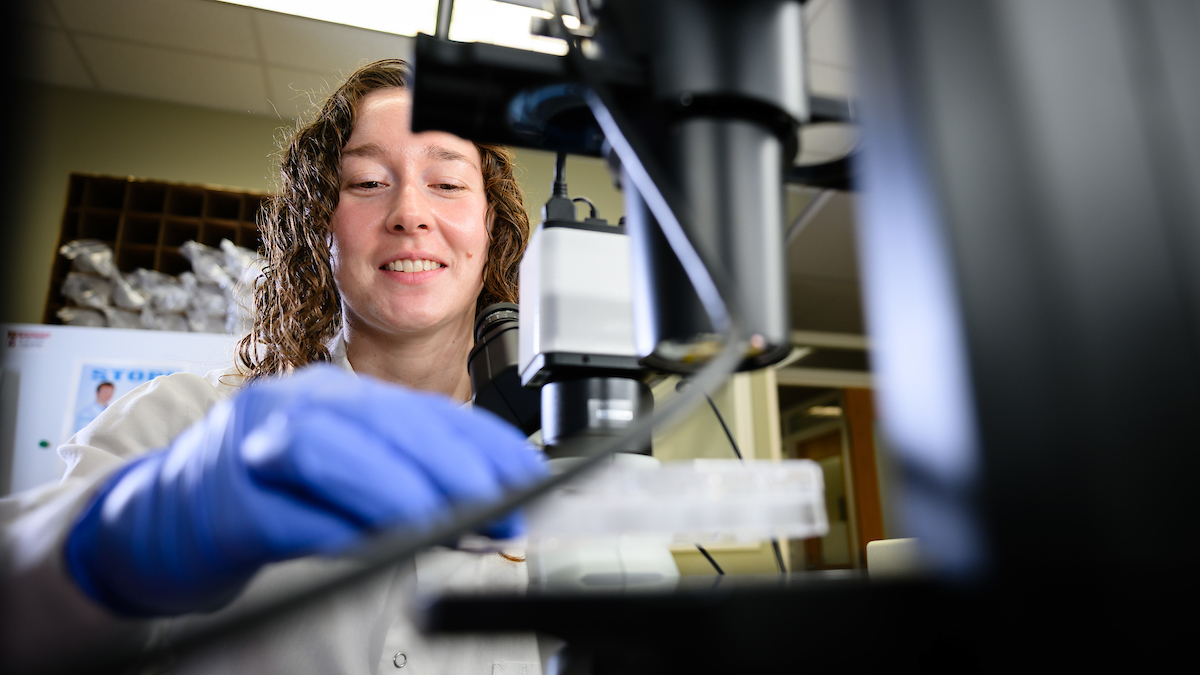What are the guidelines for pregnant veterinary medical students?
The potential for human injury always exists in the practice of veterinary medicine, and it increases whenever an involved person is pregnant. Undoubtedly, the greatest hazards are accidents which can occur while working with animal patients and which might cause physical trauma to the pregnant woman and/or her unborn child. Added hazards exist through exposure to toxic drugs, infectious agents, inhalation anesthetics, radiation and other agents.
The pregnant student is advised to:
Contact her individual instructors for specific information on the types of toxic, infectious, radiation and other hazards to which the student may be exposed.
Contact her treating physician/obstetrician immediately to obtain recommendations for a plan to minimize exposure to the hazards that may be associated with a veterinary student’s clinical assignments.
Provide a signed statement from the treating physician/obstetrician, which defines permitted limits of exposure to possible hazards during the pregnancy.
Inform administrators in the College of Veterinary Medicine of the pregnancy as early as possible in order that steps may be taken to assist the student in conforming to the plan developed by the treating physician/obstetrician.
Options for The Student:
- Withdrawal as a student. The pregnant student may consider withdrawing as a student and plan to be readmitted to graduate with the next class This option minimizes risks, but delays graduation.
- Continuation as a regular student with some schedule and assignment changes. This option may not delay or only slightly delay the time of graduation. This option may not be without risks. It is dependent upon: The College’s ability to make changes in an individual’s schedule of assignments which are prepared in advance for an entire calendar year; and the willingness of classmates to exchange schedule assignments with the pregnant student.
- Leave of absence: A student who wants time off but does not want to withdraw and re-enter with the next graduating class, may obtain a leave of absence for the time period deemed medically necessary by her physician. (This option is particularly suited to the fourth year of the veterinary program.) It will be the student’s responsibility to make up assignments or courses missed during the leave of absence. A fourth year student may be extended four blocks without having to paying any extra tuition. They may walk at the Oath & Hooding Ceremony and participate in the graduation on Saturday morning but will not receive their diploma until they have finished and passed all senior rotations. The Associate Dean of Academic Affairs may administer the Veterinarian’s Oath to them at a later time. There is no assurance that the College will be able to reschedule assignments or courses for the first, second, and third year student’s convenience.
- Continue as a student with no schedule or assignment changes.
Rights and Responsibilities:
It is recognized that the pregnant woman has rights and the responsibility for decisions
concerning her pregnancy. No one acting on behalf of the College of Veterinary
Medicine may discriminate against a student on the basis of pregnancy. She should
expect due consideration from everyone associated with her during her pregnancy
whatever her decision may be.
At the same time, any pregnant student is expected to complete each and every requirement of the Veterinary curriculum by a schedule or plan that can be reasonably implemented and
under which risks are deemed acceptable by her and her physician.
Copies of all documents pertaining to a pregnant student’s assignment must be
maintained in the student’s file.
Adopted by the CVM Cabinet, June 1, 1983
Revised on December 1, 2008
- Categories:


